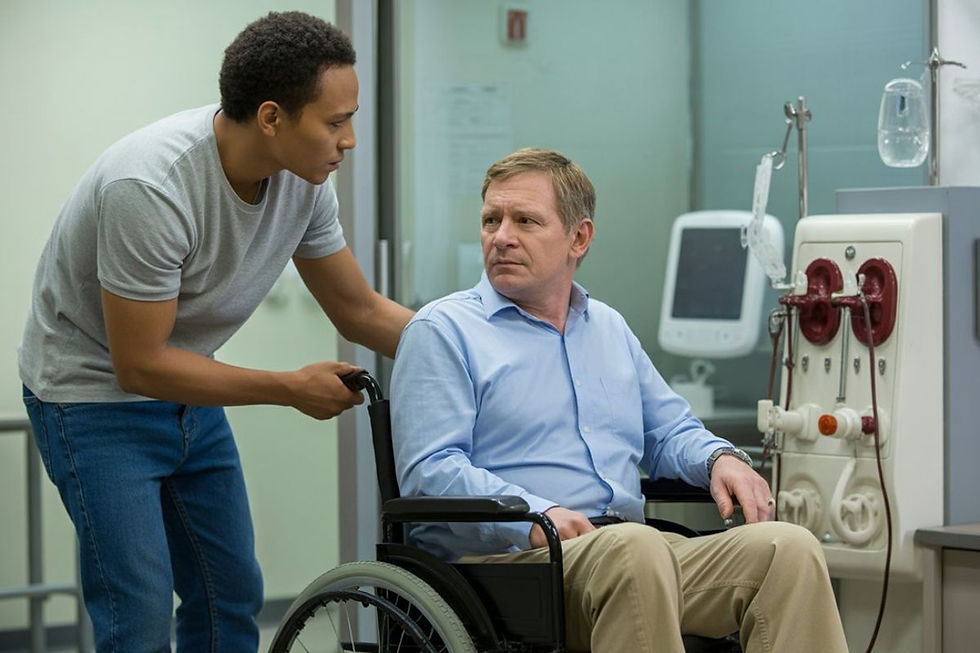Why Post-Surgery Transportation Support Is Essential for a Safe Recovery
- securecomfortcareu
- Nov 10, 2025
- 3 min read
Recovering from surgery is a delicate and often challenging process. Whether it is a minor outpatient procedure or a major operation, patients require time, care, and the right environment to heal. One of the most overlooked yet highly important aspects of post-surgery care is transportation support. Having reliable, safe, and medically aware transportation arrangements after surgery plays a critical role in ensuring the patient's safety, comfort, and smooth recovery.

1. Patients Are Not Fit to Drive After Surgery
After most surgeries, patients are given anesthesia or sedation medications that can remain in the body for several hours—sometimes even up to 24 hours. These substances affect coordination, judgment, alertness, and reaction time. Even if a patient thinks they feel “fine,” they can still be mentally impaired.
Driving in this condition is dangerous and often against medical advice.
This is why hospitals usually do not allow patients to leave alone or drive themselves home. They must be accompanied by a responsible adult or use a non-emergency medical transportation (NEMT) service trained to handle post-surgery care.
2. Reduces Risk of Falls and Physical Strain
After surgery, the body is weak and sensitive. Movements such as getting into a car, sitting down, or climbing stairs can be painful or difficult. Without assistance, patients risk:
Slipping or falling
Reopening surgical wounds
Increased pain or muscle strain
Professional post-surgery transportation providers are trained to assist patients safely from hospital to home and help them settle comfortably without causing unnecessary stress to the healing body.
3. Emotional Comfort and Peace of Mind
Surgery can be overwhelming, and recovery often comes with anxiety and discomfort. Knowing that transportation is already arranged provides emotional relief.
Having a trained caregiver or driver who understands post-surgical needs ensures:
Calm and supportive environment
Reduced stress
Increased confidence during recovery
For patients who live alone, this support becomes even more essential.
4. Ensures Follow-Up Appointments Are Never Missed
Recovery. does not end when the patient reaches home. Follow-up visits to the hospital or clinic are vital for:
Wound inspection
Stitch removal
Checking healing progress
Medication adjustments
However, many patients struggle to arrange transport, especially if they cannot drive for weeks. Scheduled medical transport guarantees that follow-up care is consistent, improving recovery outcomes.
5. Specialized Medical Transportation Provides Extra Safety
Unlike regular taxi or ride-share services, professional medical transportation is tailored to patient needs. These services often include:
✅ Trained drivers and staff
✅ Wheelchair support
✅ Assistance walking or transferring
✅ Gentle and comfortable ride experience
✅ Knowledge of medical handling procedures
This level of care ensures safe, hygienic, and stress-free transit, which is crucial for a smooth recovery.
6. Reduces Dependency on Family and Friends
While family members may want to help, they may not always be available—or physically capable—of providing proper support.
Professional transportation ensures:
Loved ones are not overburdened
Care is consistent and reliable
The patient feels dignified and independent
Conclusion
Post-surgery transportation support is not simply about traveling from one place to another—it is about ensuring safety, comfort, emotional support, and continuity of medical care. Choosing a professional and reliable transportation service helps patients recover faster, avoid complications, and maintain peace of mind through their healing journey.
If you or a loved one is preparing for surgery, planning transportation in advance is one of the most important steps you can take toward a safe and stress-free recovery.








Comments